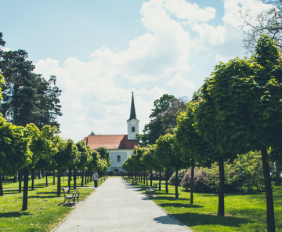Teaching students to engage the Sabbath might be the great work of youth ministry and the church in our time. I can’t shake the feeling that good news, for teenagers, is about taking time to unplug from the endless onslaught of messages on their phones, computers, and streaming shows. The Sabbath invites teenagers to behold themselves, to connect with others, to encounter the earth, and worship God. What if the gospel were framed as the story of a God who demands that they take time to delight, to play, and to rest? What if ministry with them included a deep care for their whole formation as people made in God’s image, instead of exclusive concern for their souls?
How might a whole day of orienting their lives around the reality and hope of the kingdom of God change the way they see the world?
The Sabbath Manifesto (sabbathmanifesto.org) is a great resource, an online, grassroots initiative from the fringes of society that insists on the goodness of the Sabbath and offers easy, un-intimidating steps towards making Sabbath practice a reality. They suggest any or all of ten principles:
- Avoid technology.
- Connect with loved ones.
- Nurture your health.
- Get outside.
- Avoid commerce.
- Light candles.
- Drink wine – for our purposes, maybe some other delicious non-alcoholic beverage of comfort?
- Eat bread.
- Find silence.
- 10.Give back.
These principles (with the exception, of course, of real wine) would be incredible guidelines for students on a retreat, and a way for them to continue their practice beyond the event if they chose to do so. Theological discussions about who God is, how God seeks to bless people with the Sabbath, and what it means to imagine the kingdom could be explored.
This is the sort of practice that actually changes lives, because it’s actually good. I believe wholeheartedly that once students’ begin engaging the Sabbath, they will always long for it and have their eyes opened to the restless, disconnecting technology around them. Through Sabbath practices, they have the opportunity to become whole people, formed in the way of Jesus. They have time and space to ask big questions, to play and sleep, and to get to know themselves during the incredibly formative time of adolescence. They are introduced to community that is not the anemic social interaction of digital characters on a screen, but connection with other human beings in real time.
I have seen students unplugged. They play with sticks and rocks on sunny days, they laugh, play and invent games together. They speak what is true about themselves, their fears, their hopes and dreams. They make eye contact. They learn to cook, to savor and share what they have prepared. They take naps and sleep deeply. At first it is uncomfortable, and always there are lamenting cries of “I’m bored!” The best evidence I have for the goodness of Sabbath for teenagers is the light that comes into their eyes when they wake up to the possibility of a whole day where their only agenda is to live well.




